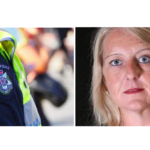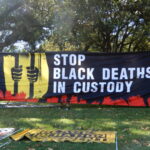The Wealthy and Powerful Getting Away with Tax Fraud

In case you missed it, a leak of data from Panama-based law firm Mossack Fonseca has allegedly exposed wealthy individuals, including public officials, hiding their money in offshore companies to avoid tax. The ‘Panama papers’ contain information about more than 214,000 offshore ‘shell’ corporations set up in tax havens such as Panama, the British Virgin Islands and the Bahamas.
Mossack Fonseca allegedly provided “front people”, known as nominees, to act as owners of these companies, which would funnel client money to avoid local taxes, or to launder illegally obtained funds. While establishing an offshore account is not illegal in itself, the Panama papers suggest the accounts and businesses were used illegally to keep their wealth a secret from local tax authorities such as the ATO.
Who Is Allegedly Involved?
The individuals implicated and scope of corruption are indeed cause for concern.
The files suggest that more than 14,000 banks, law firms, company incorporators and other ‘middlemen’ acted in league with Mossack Fonseca to set up shell companies. The ‘middlemen’ allegedly shirked their legal duties to ensure that clients were not involved in criminal enterprises, tax dodging or political corruption.
The leak suggests that some of the world’s wealthiest people were involved, including 12 current and former world leaders and 128 politicians and public officials from around the globe.
Those who are implicated include:
- Close associates of Russian President Vladimir Putin, who allegedly horded $2 billion through shadow companies,
- Icelandic Prime Minister Sigmundur David Gunnlaugsson, who owned an offshore firm that held millions of dollars in Icelandic bank bonds during the country’s financial crisis,
- Offshore companies controlled by the Prime Minister of Pakistan, the King of Saudi Arabia, and Ukrainian President Petro Poroshenko who was revered for his anti-corruption stance,
- The family of Chinese leader Xi Jinping, the father of British Prime Minister David Cameron and the children of the President of Azerbaijan,
- 29 billionaires featured in Forbes Magazine’s list of the world’s 500 richest people,
- 33 people and companies blacklisted by the US Government because they had done business with Mexican drug lords, terrorist organisations or ‘rogue nations’ including North Korea.
How About Australia?
Domestically, the ATO is currently investigating 800 Australian residents named in the Papers, with the data including passport copies of those allegedly involved.
While it will time to investigate the data, the ATO claims that 120 people have already been linked to a single offshore intermediary in Hong Kong known as ‘Popular Corporate Service Limited.’
Economic Impact
Anti-poverty organisation, Oxfam, believes the global network of tax havens has significantly contributed to the recent explosion in global wealth inequality, allowing the rich to hide trillions of dollars in assets.
“Tax havens are at the core of a global system that allows large corporations and wealthy individuals to avoid paying their fair share,” said Raymond C. Offenheiser, President of Oxfam America, “depriving governments, rich and poor, of the resources they need to provide vital public services and tackle rising inequality.”
According to an Oxfam study, 8 per cent of all global individual financial wealth sits offshore, which totals US$7.6 trillion going virtually untaxed. This, Oxfam says, equates to US$190 billion in unpaid taxes.
The organisation reports that in Africa, as much as 30 percent of financial wealth is held offshore. “This same amount of money could provide healthcare for mothers and children that would save the lives of four million children a year and employ enough teachers to get every African child into school,” the Oxfam report states.
In terms of the impact on the Australian public, research by the Tax Justice Network (TJN) in 2011 found that tax evasion costs $41.4 billion a year, a figure likely to have risen by now. TJN believes tax evasion is also a major contributor to the Greek debt crisis.
”Greece’s problems stem from 40 years of tax evasion and not collecting enough tax revenue,” director John Christensen said. The $29.4 billion in tax evaded by Greeks every year is equal to 9.65 per cent of the country’s GDP, compared with an Australian percentage of 4.31 per cent, given by the TJN.
Australian Measures to Minimise Tax Avoidance
The Australian government is actively clamping down on tax avoidance.
In 2006, the Australian Government set up Project Wickenby, a task force dedicated to reducing tax evasion. The project has so far resulted in 45 convictions and the collection of more than $500 million in undeclared tax revenue.
However, there is criticism that the harsh penalties for tax evasion are disproportionately enforced against regular taxpayers and small businesses, and that little is being done to ensure large corporations pay their fair share.
Meanwhile, the Coalition’s new multinational tax avoidance bill strengthens the ATO’s powers to compel disclosure of financial information and doubles penalties for multinational companies operating in Australia and trying to avoid local tax.
While the threshold for a system of greater disclosure was raised from the proposed $100 million to $200 million, seeing 281 affected rather than around 700, the legislation is a step in the right direction and supported by the Tax Justice Network.
What More Can Be Done?
The real problem lies in the broader global system of loopholes and pockets of anonymity.
There are suggestions that the best way to crack down on tax avoidance is to establish mandatory reporting of multinationals, similar to domestic laws passed in Australia. This would require information from multinational companies about where they are trading, and where they report their taxes.
Such measures would require global agreement, which would be difficult if not impossible to obtain given what’s at stake. The leaked files suggest Mossack Fonseca has been thwarting Australian regulators and police inquiries for many years, actively lobbying since 2004 to prevent Australia from signing agreements that would allow the exchange of tax information with the tax haven of Samoa. While Samoa eventually signed the agreement with Australia in 2009, information requests to Samoa can still take more than three years to process.
Hopefully this recent leak compels governments across the globe to face this issue and institute strong measures towards corporate disclosure. This will ensure that regular taxpayers are not picking up the slack for the richest 1% who continue to flaunt the law, while also increasing the funds available to important public services.






